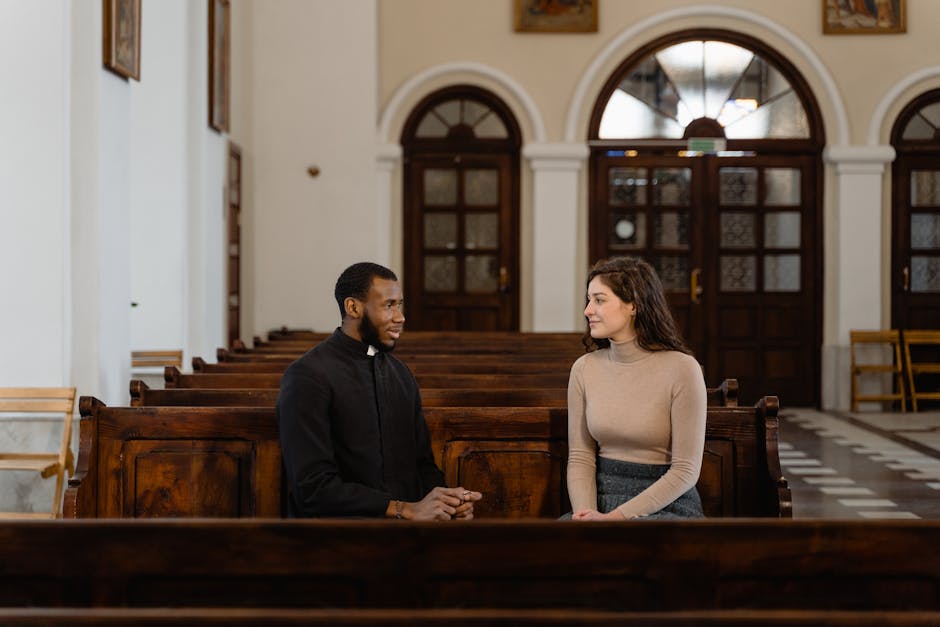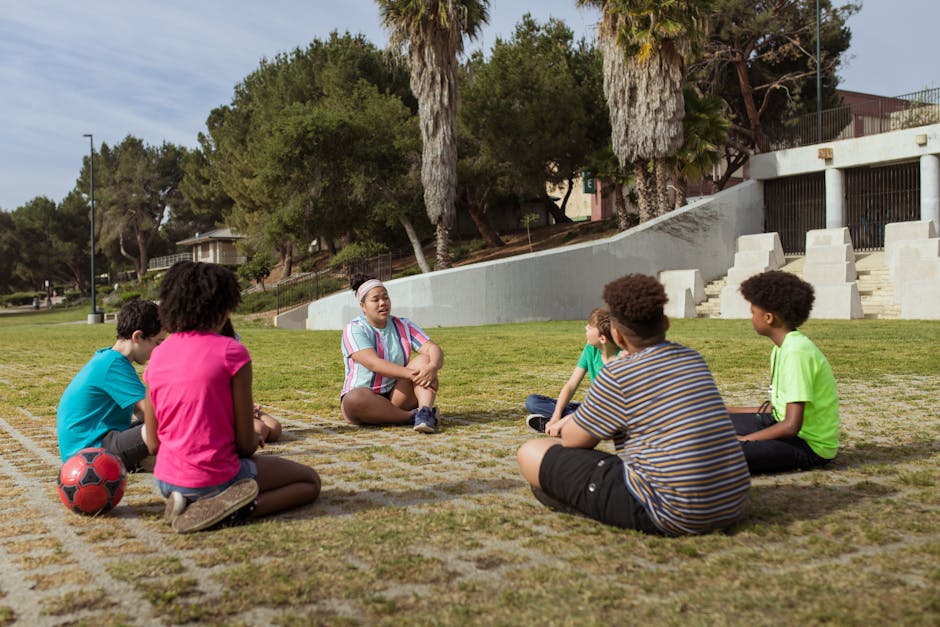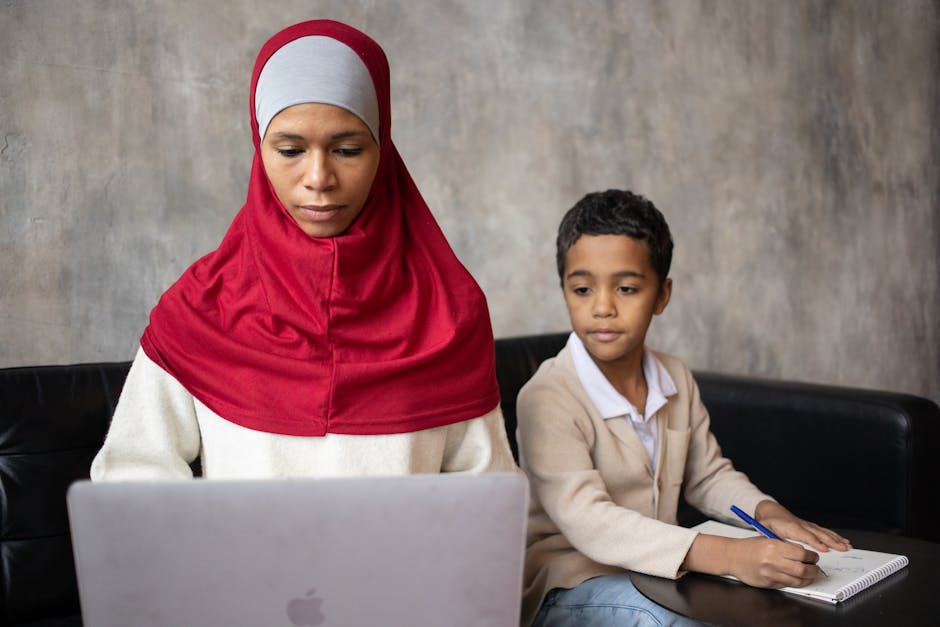The Importance of Mentorship in Religion
Religion has been a source of guidance, solace, and community for countless individuals throughout history. It provides a framework for moral values, spiritual growth, and a sense of belonging. Within the realm of religion, mentorship plays a crucial role in shaping the beliefs, practices, and lives of adherents. Mentorship in religion is more than just a passing relationship; it is a profound connection that offers guidance, support, and wisdom to those seeking to deepen their faith and understanding.
Understanding Mentorship in Religion

At its core, mentorship in religion involves a seasoned individual, often a religious leader or knowledgeable practitioner, guiding and nurturing the spiritual journey of a less experienced person. This mentor-mentee relationship is marked by trust, respect, and a shared commitment to the teachings and traditions of a particular faith. The mentor serves as a role model, offering insights, encouragement, and advice to help the mentee navigate the complexities of religious life.
Mentorship in religion is not a one-size-fits-all concept. It can take on various forms depending on the religious tradition, the needs of the mentee, and the goals of the relationship. In some cases, mentorship may be formalized within a religious institution, such as a seminary or monastery, where novice practitioners receive guidance from experienced elders. In other instances, mentorship may be more informal, with individuals seeking out mentors based on personal connections or shared interests.
The Role of Mentorship in Spiritual Growth

One of the primary functions of mentorship in religion is to facilitate spiritual growth and development. Mentors provide valuable insights, teachings, and practices that help mentees deepen their understanding of their faith and cultivate a closer relationship with the divine. Through regular meetings, discussions, and shared experiences, mentors can help mentees navigate challenges, overcome doubts, and strengthen their spiritual discipline.
In addition to imparting knowledge and wisdom, mentors in religion also serve as spiritual guides, helping mentees discern their calling, purpose, and path in life. They offer a listening ear, a compassionate heart, and a steady hand to guide mentees through times of uncertainty, crisis, or transition. By modeling virtuous behavior, ethical conduct, and a deep commitment to their faith, mentors inspire mentees to emulate these qualities in their own lives.
Educational and Intellectual Mentorship

Mentorship in religion is not limited to spiritual matters; it also encompasses educational and intellectual guidance. Mentors help mentees deepen their knowledge of religious texts, doctrines, and traditions, providing a solid foundation for their faith journey. Through study sessions, discussions, and shared readings, mentors can help mentees develop a deeper understanding of complex theological concepts and philosophical ideas.
Moreover, mentors in religion often encourage critical thinking, curiosity, and open-mindedness in their mentees. They challenge mentees to question preconceived notions, explore new perspectives, and engage with diverse voices within their religious tradition. By fostering a spirit of intellectual inquiry and dialogue, mentors empower mentees to think critically about their faith, challenge dogma, and seek a deeper understanding of the divine.
Emotional Support and Community Building

Another important aspect of mentorship in religion is the provision of emotional support and community building. In times of personal crisis, grief, or doubt, mentors offer a listening ear, a compassionate heart, and a safe space for mentees to express their fears, struggles, and uncertainties. Through their presence, empathy, and non-judgmental attitude, mentors help mentees feel seen, heard, and understood.
Furthermore, mentors in religion play a vital role in fostering a sense of community and belonging among mentees. They help mentees connect with like-minded individuals, form meaningful relationships, and participate in religious rituals, ceremonies, and celebrations. By creating a supportive and welcoming environment, mentors help mentees feel part of something greater than themselves, a spiritual community that shares their values, beliefs, and aspirations.
Historical Perspectives on Mentorship in Religion
Mentorship in religion has a rich historical tradition that dates back centuries. In various religious traditions, mentorship has played a central role in the transmission of knowledge, wisdom, and spiritual practices from one generation to the next. For example, in the Christian tradition, the relationship between a spiritual director and a disciple has been a cornerstone of monastic life, with renowned figures such as St. Benedict and St. Teresa of Avila serving as spiritual mentors to aspiring monks and nuns.
Similarly, in the Islamic tradition, the concept of tazkiyah, or spiritual purification, involves the guidance of a spiritual mentor (murshid) who helps the seeker (mureed) cultivate a deeper connection with God. The Sufi tradition, in particular, places a strong emphasis on the importance of a spiritual guide who can help disciples navigate the inner dimensions of faith and achieve spiritual enlightenment.
Contemporary Applications of Mentorship in Religion
While mentorship in religion has deep roots in history, its relevance and significance continue to resonate in contemporary times. In today’s fast-paced, interconnected world, individuals are seeking guidance, support, and wisdom from experienced mentors who can help them navigate the complexities of modern life. Religious communities and institutions are recognizing the importance of mentorship in nurturing the next generation of faithful practitioners.
Moreover, mentorship in religion has evolved to embrace digital technologies and online platforms, allowing mentors and mentees to connect across geographical boundaries and cultural divides. Virtual mentorship programs, online study groups, and social media platforms have made it easier for individuals to find mentors who share their religious beliefs, values, and interests. This digital transformation has opened up new avenues for mentorship in religion, enabling a wider audience to benefit from the guidance and support of experienced mentors.
Challenges and Controversies in Mentorship in Religion
While mentorship in religion offers numerous benefits and opportunities for growth, it is not without its challenges and controversies. One of the primary concerns is the issue of power dynamics within mentor-mentee relationships. In some cases, mentors may abuse their authority, manipulate mentees, or engage in inappropriate conduct that harms the mentee’s well-being. Religious institutions and communities must establish clear guidelines, boundaries, and safeguards to prevent the misuse of power and protect vulnerable individuals.
Additionally, the lack of diversity and inclusivity in mentorship programs can be a barrier to the full participation of individuals from marginalized or underrepresented groups. Mentors must be sensitive to the unique needs, experiences, and perspectives of mentees from diverse backgrounds and ensure that mentorship programs are accessible, equitable, and welcoming to all individuals, regardless of their race, gender, sexual orientation, or socioeconomic status.
Common Misconceptions about Mentorship in Religion
One common misconception about mentorship in religion is that it is only relevant for individuals who are new to their faith or seeking to deepen their knowledge. In reality, mentorship in religion is beneficial for individuals at all stages of their spiritual journey, whether they are beginners, seasoned practitioners, or spiritual leaders. Mentors can offer fresh insights, alternative perspectives, and renewed inspiration to individuals seeking to rekindle their faith or explore new avenues of spiritual growth.
FAQs about Mentorship in Religion
Q: How can I find a mentor in my religious tradition?
A: Finding a mentor in your religious tradition can be a rewarding and enriching experience. Start by reaching out to religious leaders, teachers, or practitioners in your community who embody the values and teachings you admire. Attend religious gatherings, study groups, or spiritual retreats where you can meet like-minded individuals who may be willing to mentor you on your spiritual journey.
Q: What qualities should I look for in a mentor?
A: When seeking a mentor in religion, look for individuals who exhibit wisdom, compassion, integrity, and a deep commitment to their faith. A good mentor should be a good listener, an empathetic guide, and a source of inspiration and encouragement. Trust your instincts and choose a mentor who resonates with your values, beliefs, and aspirations.
Conclusion
In conclusion, mentorship in religion is a transformative and enriching experience that can deepen one’s understanding of faith, foster spiritual growth, and build a sense of community and belonging. By engaging in a mentor-mentee relationship, individuals can benefit from the wisdom, guidance, and support of experienced mentors who can help them navigate the complexities of religious life and achieve a deeper connection with the divine. As we continue to explore the role of mentorship in religion, let us embrace the opportunities for growth, learning, and connection that this profound relationship offers.
To wrap things up, mentorship in religion is not just a passing relationship; it is a sacred bond that nourishes the soul, uplifts the spirit, and empowers individuals to live out their faith with authenticity and purpose. Let us continue to honor and celebrate the importance of mentorship in religion as we journey together towards a deeper understanding of ourselves, our faith, and our place in the world.




